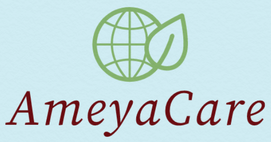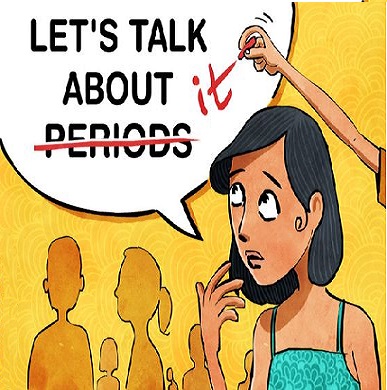Menstruation is not just a biological function; it’s a deeply personal journey that women and individuals who menstruate go through. For far too long, we’ve allowed society to cloak this natural process in silence, stigma, and shame. It’s time to speak and explore the reasons why breaking this silence and having open, heartfelt conversations about menstrual hygiene is absolutely crucial.
Women’s Health The impact of menstrual hygiene on women’s health is profound. Proper menstrual care is not just about physical well-being; it’s about emotional health as well. When women lack access to clean and safe menstrual products or knowledge about how to use them correctly, it leaves them vulnerable to infections. These infections not only affect their bodies but also their mental health. The discomfort and pain can take a significant toll, robbing them of their well-being and peace of mind.
Breaking Stigma and Shame The silence surrounding menstruation perpetuates shame and stigma, which cuts deep into the core of a woman’s self-esteem. Young girls, just beginning their journey into womanhood, often feel overwhelmed with embarrassment and insecurity due to societal taboos. By having open, honest discussions about menstrual hygiene, we can start to chip away at these deeply ingrained negative attitudes. We can help women and girls embrace their bodies with the love, compassion, and confidence they truly deserve.
Access to Menstrual Products The struggle for access to safe and affordable menstrual products is a heart-wrenching ordeal for many women in low-income areas. The lack of access can force women into desperate situations, making them resort to unhygienic alternatives such as old rags or leaves. The distress and anguish caused by this lack of access are immeasurable. By having open discussions about menstrual hygiene we can make philanthropists around the world aware of the plight of women in low-income areas and develop ways to make charitable menstrual hygiene donations.
Empowerment and Education Education is a powerful tool for empowering women and girls. Teaching them about menstrual hygiene isn’t just about enhancing physical well-being; it’s about giving them emotional strength and the confidence to face the world. This knowledge isn’t just practical; it’s transformative. It allows women and girls to manage their periods without hindrance, to chase their dreams, pursue their education, and reach for the stars without the burden of embarrassment and insecurity.
Environment Disposable menstrual products like pads and tampons have a deep and lasting impact on the environment. These products take hundreds of years to decompose, leaving behind a scar on the planet. By having conversations about menstrual hygiene, we can raise awareness about sustainable alternatives like period underwear and menstrual cups.
Inclusivity Menstrual hygiene isn’t solely a women’s issue; it affects anyone who experiences menstruation. Honest discussions promote inclusivity and honor the diverse experiences of those who menstruate. It’s about understanding and empathizing with the emotional journey each individual undertakes.
Policy Changes Public discourse can drive policy changes, and these changes are often born out of heartfelt pleas for justice. When we openly discuss menstrual hygiene, we lay bare the emotional distress and urgency of this issue. Governments and organizations must implement policies that ensure the provision of safe, affordable menstrual products and hygiene education. It’s an emotional cry for justice that must be answered.
Public Health, Dignity, and Equality Discussing menstrual hygiene isn’t just about comfort; it’s about the emotional well-being of women and individuals who menstruate. It’s about their dignity, their emotional journey, and their equality. Breaking the silence is a significant step toward creating a world where emotional strength and empowerment are celebrated.
It’s time to have raw, emotional conversations, to educate the masses, and to passionately advocate for the changes needed to ensure that menstrual hygiene is not a privilege but a basic right. It is only when we talk openly about this vital topic can we take proper steps to create an empathetic, equitable, and empowered world for all individuals who menstruate.
By: Kiertan Patel


